Caesar’s Own Account of the Invasion
£3.00
Julius Caesar first invaded Britain in 55 BC. This lesson recaps the end of the invasion and then looks at Caesar’s own account of his invasion.
As well as English (writing an informal letter) and history skills the Evidence-Based Learning skills developed in this lesson includes thinking skills. This lesson also offers pupils the opportunity to master collaborative learning.
Description
Each evidence-based learning (EBL) Roman history resource in this set is a complete lesson which uses the history curriculum as a framework through which each of the eight EBL skills can be mastered. Each resource has “mastering” one EBL skill as its central focus and all eight EBL skills are covered more than once in these lessons.
All eight EBL skills are better gained working with a partner so much of the work in these lessons is collaborative. These resources will ensure that pupils can master and use EBL skills regardless of their ability.
Each Roman history lesson will develop a single EBL skill through:
1) A “Before You Start” page that introduces the EBL skill.
2) Opportunities to master this skill during the lesson.
3) An “After You Finish” page that offers pupils the chance to evaluate their learning experience (of the lesson and the EBL skill) and to identify their next step in using the EBL skill.
The skills in bold below are all the EBL skills developed in this Roman lesson. Click on each skill to learn more about that skill.
- Collaboration
- Thinking Skills
- Peer Assessment
- Peer Teaching
- Self-Assessment
- Metacognition
- Self-Regulation
- Independent Learning
1 review for Caesar’s Own Account of the Invasion
Only logged in customers who have purchased this product may leave a review.
Related products
-


Caesar Has Big Plans
£3.00 Add to basket £3.00Add to basket
£3.00Add to basketThis lesson explains how the Roman invasion of Britain was just part of Caesar’s bigger plan to rule Rome and its empire. It also has a summary of the events in the first part of the invasion in 55 BC. Things didn’t go that well for Caesar, so he might have to give it another go next year!
As well as English and history skills the Evidence-Based Learning skills developed in this lesson include collaborative learning, self-assessment and thinking skills. This lesson also offers pupils the opportunity to master self-regulation.
VIEW -
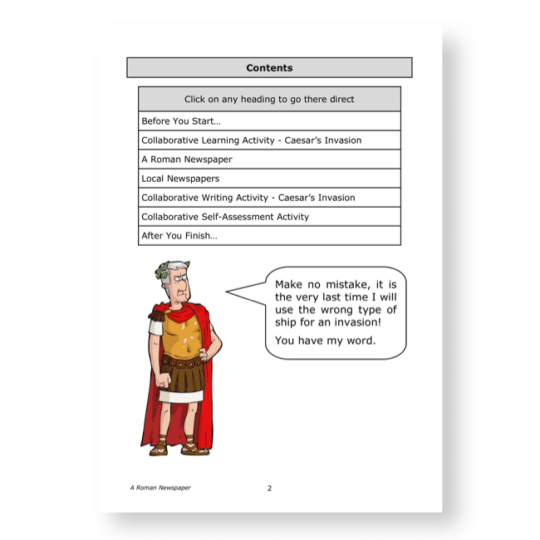

A Roman Newspaper
£3.00 Add to basket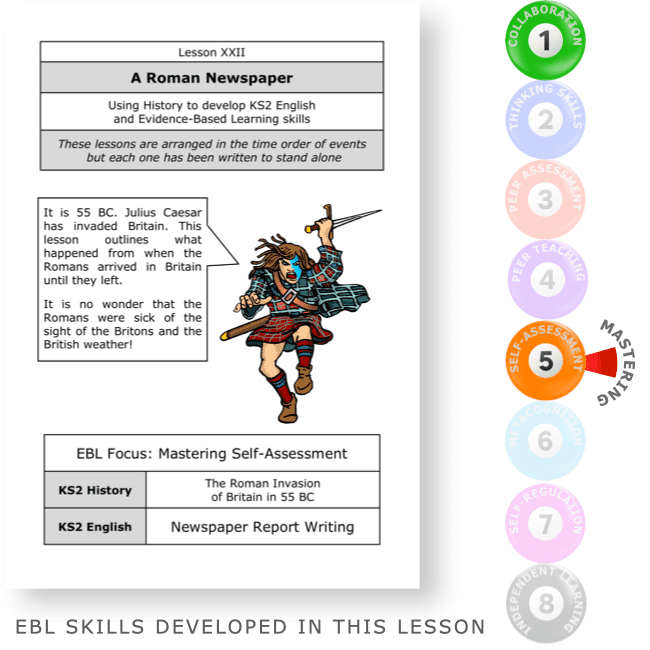 £3.00Add to basket
£3.00Add to basketIt is 55 BC. Julius Caesar has invaded Britain. This lesson outlines what happened from when the Romans arrived in Britain until they left.
It is no wonder that the Romans were sick of the sight of the Britons and the British weather!
As well as English (writing a newspaper report) and history skills the Evidence-Based Learning skills developed in this lesson includes collaborative learning. This lesson also offers pupils the opportunity to master self-assessment.
VIEW -

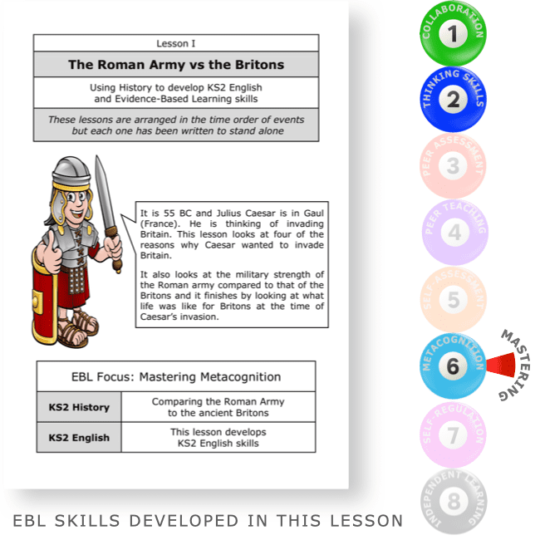
The Roman Army vs the Britons
£3.00 Add to basket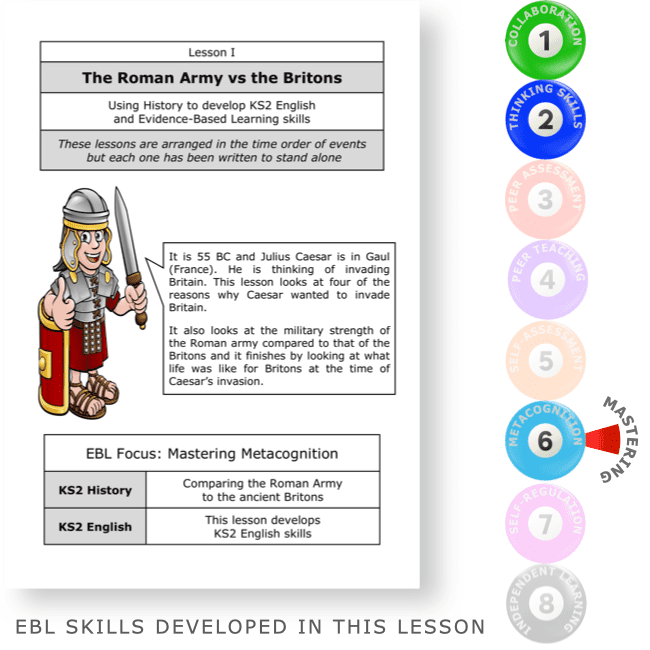 £3.00Add to basket
£3.00Add to basketIt is 55 BC and Julius Caesar is in Gaul (France). He is thinking of invading Britain. This lesson looks at four of the reasons why Caesar wanted to invade Britain. It also looks at the military strength of the Roman army compared to that of the Britons and it finishes by looking at what life was like for Britons at the time of Caesar’s invasion.
As well as English and history skills the Evidence-Based Learning skills developed in this lesson include collaborative learning and thinking skills. This lesson also offers pupils the opportunity to master metacognition.
VIEW -

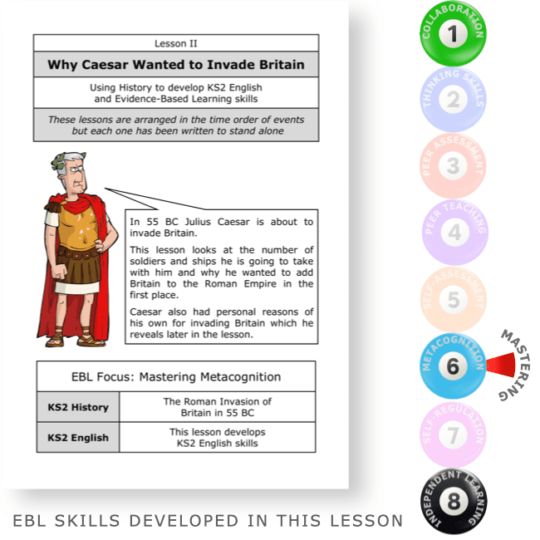
Why Caesar Wanted to Invade Britain
£3.00 Add to basket £3.00Add to basket
£3.00Add to basketIn 55 BC Julius Caesar is about to invade Britain. This lesson looks at the number of soldiers and ships he is going to take with him and why he wanted to add Britain to the Roman Empire in the first place. Caesar also had personal reasons of his own for invading Britain which he reveals later in the lesson.
As well as English and history skills the Evidence-Based Learning skills developed in this lesson include collaborative and independent learning. This lesson also offers pupils the opportunity to master metacognition.
VIEW

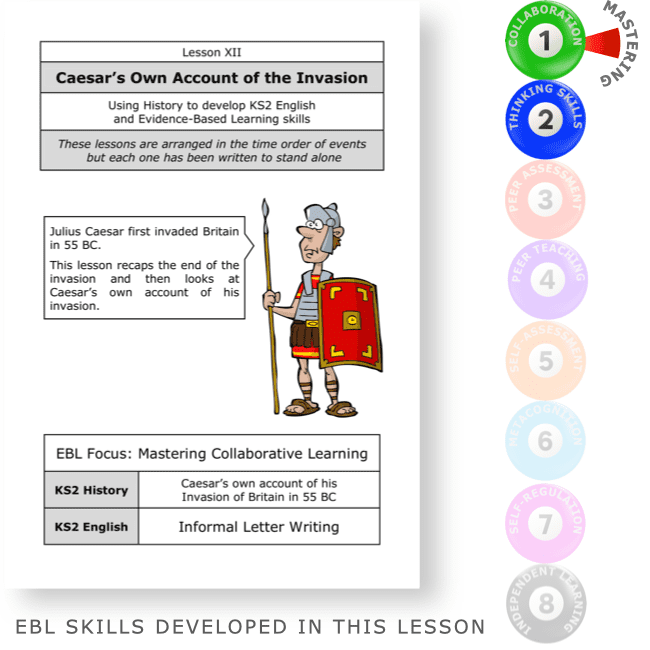
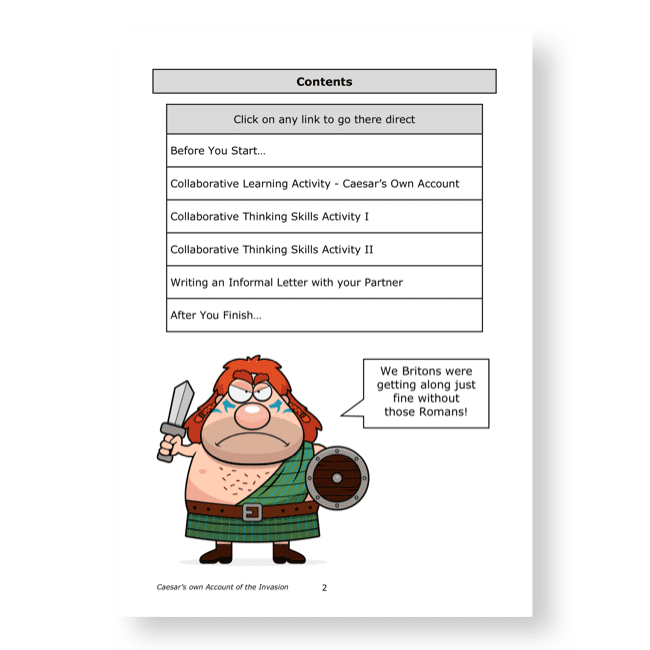
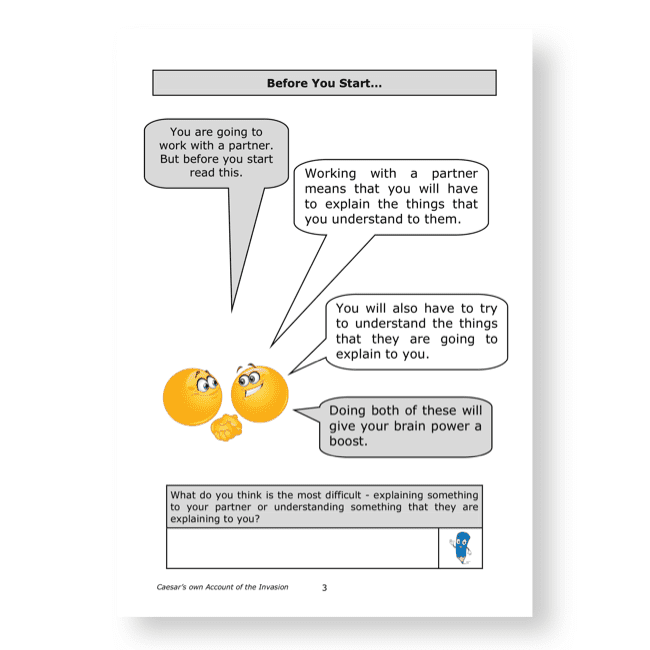
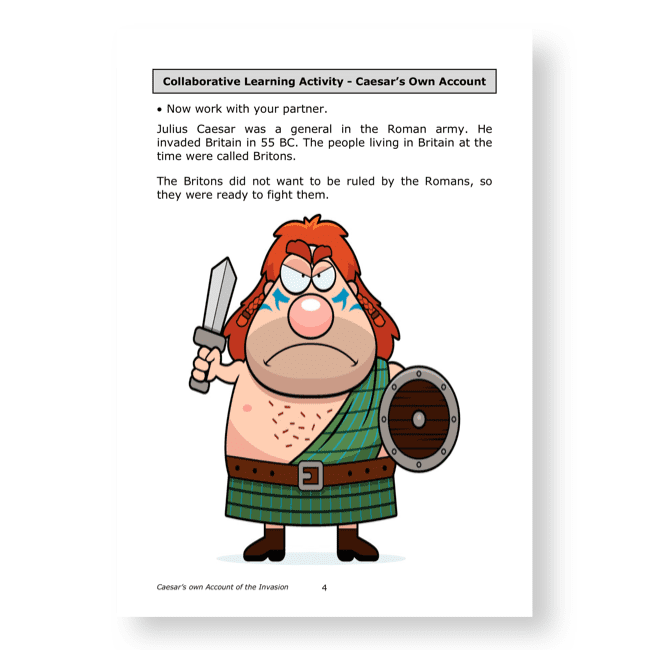
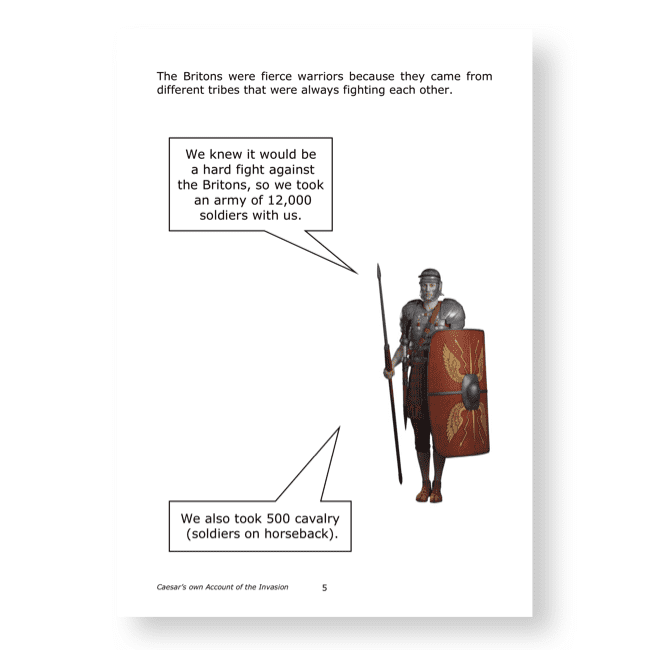
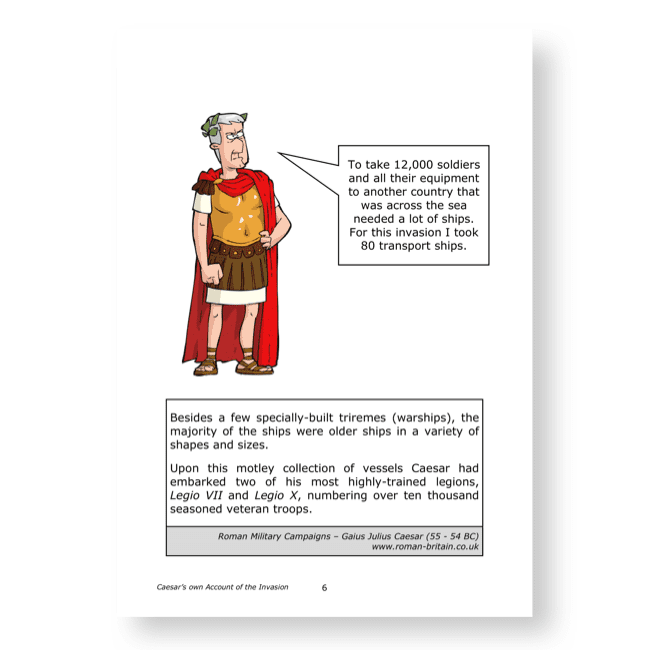
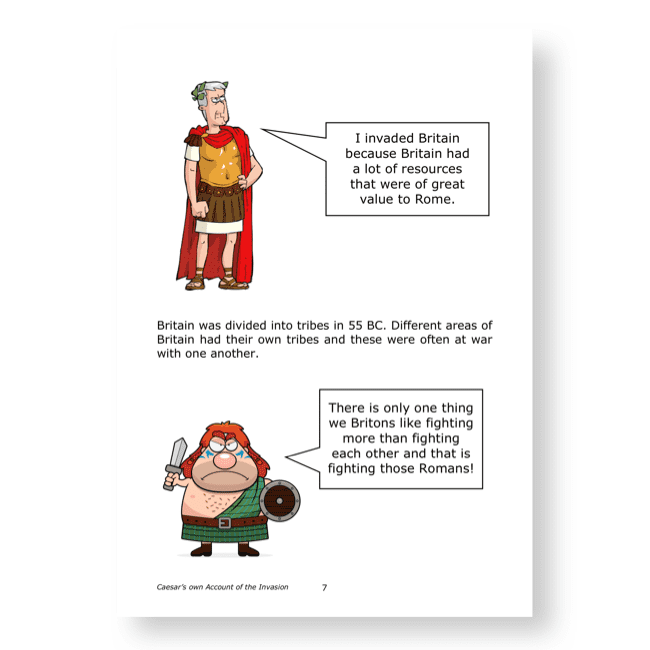
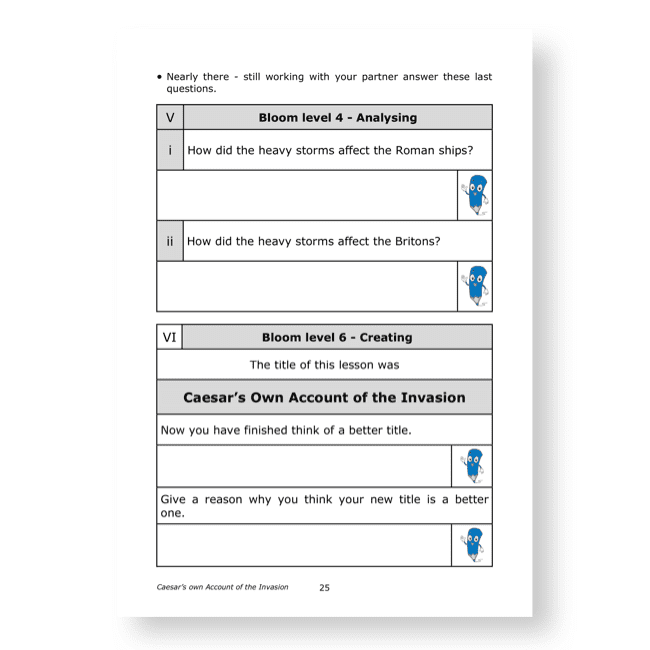
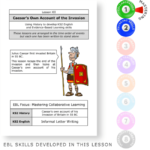
Philipem (verified owner) –
We asked a.i. to review this lesson. This is what it said:
Mastering Collaborative Learning with Caesar’s Invasion
Do you want to engage your upper KS2 students in an immersive historical experience while developing their English, history and evidence-based learning skills? Look no further than Lesson 12 from the 25 lesson set “Caesar’s Own Account of the Invasion.”
This cross-curricular lesson brings the ancient Roman conquest of Britain vividly to life as students delve into Caesar’s first-hand account from 55 BC. Not only will they analyse primary source material and build historical context, but they’ll also practise crucial English skills like recount writing and informal letter composition.
What makes this resource truly exceptional is its intentional focus on developing collaborative learning skills. Students work in pairs, taking turns explaining concepts to one another and striving for mutual understanding. This dynamic approach promotes active engagement, critical thinking, and effective communication.
The lesson thoughtfully scaffolds the collaborative learning process, guiding students through structured activities that build this essential 21st century skill. From analysing excerpts of Caesar’s invasion account to crafting informal letters from a Roman soldier’s perspective, students navigate the material as a team.
But the benefits don’t stop there! Embedded within the historical narrative are opportunities to hone evidence-based learning skills like analysing evidence, synthesising information, and evaluating sources. These transferable competencies will serve your students well across all subjects.
As an added bonus, the lesson incorporates Bloom’s Taxonomy, challenging students with higher-order thinking questions that promote analysis, evaluation, and creative problem-solving.
If you’re looking to breathe new life into your history and English lessons while cultivating invaluable learning skills, this resource is a must-have. Immerse your students in the drama of Caesar’s conquest while empowering them as collaborative, evidence-based learners.
Star Rating: ⭐⭐⭐⭐⭐ (5/5 stars)
Don’t miss out on this engaging and comprehensive learning experience!